At least 10 gates and barriers were identified by AyiboPost at the entrance to several neighborhoods in the metropolitan area of Port-au-Prince
Steeve Pierre is a member of the committee which installed a gate in 2019 on rue Père Huc, on Route de Frères, in Pétion-Ville. The initiative had been in the works since 2017 within the neighborhood committee.
In 2019, the growing influx of unknown passers-by in the area, combined with the increase in insecurity during “Peyi lòk”, worried residents.
So, the committee decided to step up and install a barrier at the entrance to the neighborhood. “It was our only recourse. We knew that we could not count on the police,” explains Pierre.
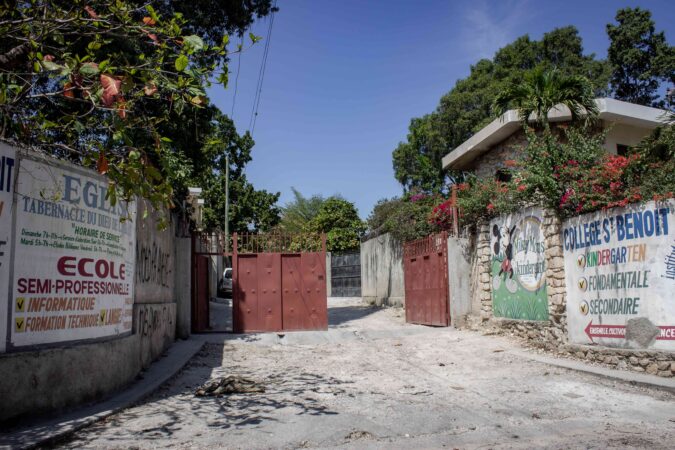
The committee installed this barrier at the entrance of Père Huc Street, which opens onto Route de Frères, in 2019. | © Jean Feguens Regala/AyiboPost
This initiative, although anchored for some time in Haiti, mainly in certain neighborhoods known to be upscale, has gained in importance in recent years in the metropolitan area of Port-au-Prince, in a context where armed groups are tightening their grip on localities previously spared.
At least 10 gates and barriers were identified by AyiboPost at the entrance to several neighborhoods in the metropolitan area of Port-au-Prince, notably in Nazon, Turgeau, Delmas, Pétion-Ville, Pacot, Croix Desprez, Belle-Ville, etc.
After attacks by armed bandits in the town of Debussy in April 2023 and those on the town of Carrefour-Feuilles in August, the residents of Croix Desprez grew afraid and thought of installing a gate at the entrance to their neighborhood.
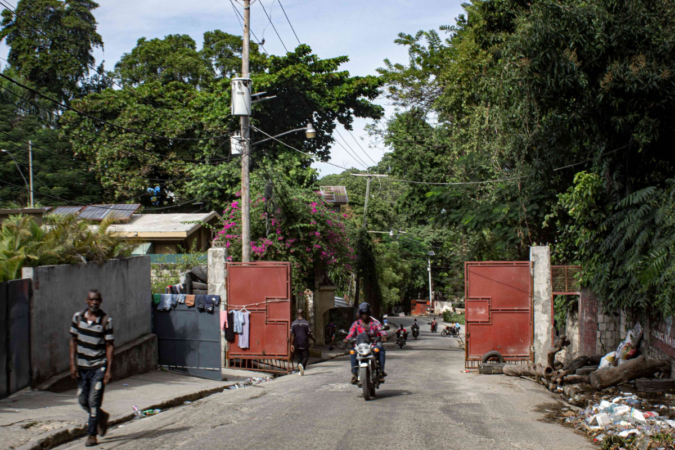
A barrier has been installed at Haut Turgeau, at the entrance of the section that leads to Quisqueya University.
The initiative came together in early 2024.
Loovensky has lived in the area for two years. The young student protests against the fact that people are forced to leave their homes but remains skeptical about the effectiveness of the initiative.
“The paradoxical thing is that the very presence of the gate constantly reminds me that there is something wrong. As a result, it makes me more and more anxious,” he explains.
Moreover, he continues, “all this adds to the fact that deep down, I know very well that I cannot be safe anywhere.”
Loovensky recalls the assassination of President Jovenel Moïse at his home in July 2021.
Lire aussi : Ariel Henry fait partie des organisateurs de l’assassinat de Jovenel Moïse, d’après le juge d’instruction
“Instead of feeling safe, it makes me feel like I’m in a prison,” says Sara, another resident of Croix Desprez, referring to the establishment of strict rules on the time at which people can come and go.
“Behind the barrier, I don’t feel free to move,” says the young lady.
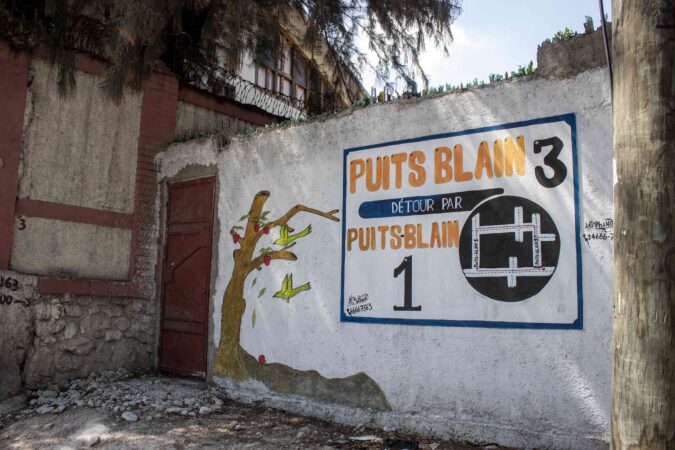
At the entrance of Puits-Blain 3, on Route de Frères, the residents have erected a wall with only a small barrier for pedestrians.
For other residents, knowing that the gate closes in the evening before going to bed provides a sense of security. This is the case of Steeve Pierre.
“It’s not the most effective solution, but it’s calming,” says Pierre.
To build the gate they contributed 2000 or 3000 gourdes.
In several neighborhoods, residents rely on brigades responsible for monitoring the entry and exit of individuals.
It is therefore risky to venture beyond the limits imposed at a late hour without being able to clearly identify yourself.
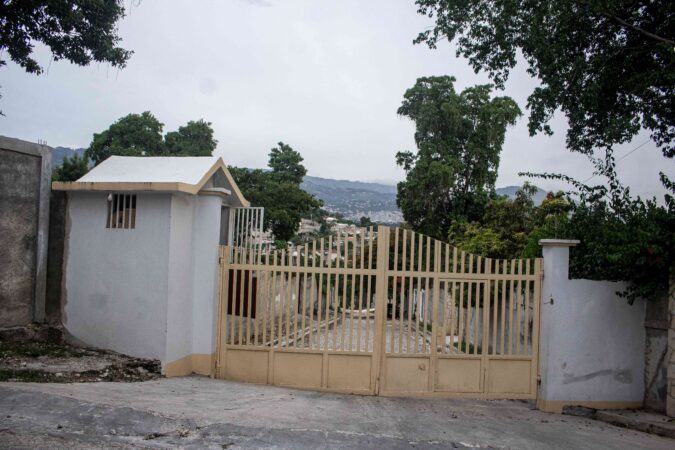
In English, that would be « View of a barrier at the entrance of a dead-end street in Vivy Mitchell. »
Steeve Pierre remembers a recent episode where a man living on rue Père Huc came back to knock on the barrier at 2 in the morning, without having warned that he was going to return so late. Normally, the barrier closes at 10 p.m.
“It created panic. But we immediately resolved this matter and took steps to ensure that it would not happen again,” explains Pierre.
Between April and August 2023, the Center for Analysis and Research in Human Rights (CARDH) counts more than 200 people killed, lynched or burned in the metropolitan area of Port-au-Prince as part of the popular revolt movement called “Bwa Kale”.
In several neighborhoods, residents launched a hunt for strangers and individuals suspected of colluding with armed gangs.
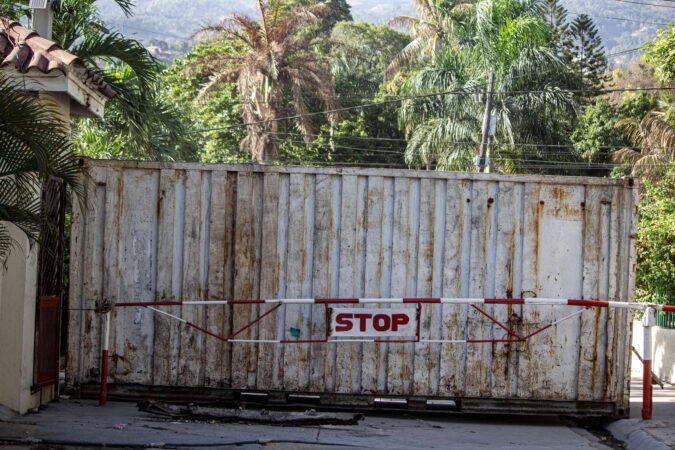
At the Carrefour leading to the entrance of Belvil, residents installed a container as a barrier against insecurity well before March 19, 2023.
Several barriers were observed in Turgeau.
Jean Baptiste Monjoly has been observing this since April 2023 at Cité Gabriel, where he lives.
People helped put this scheme in place to prevent gang attacks.
As soon as an event occurs in the surrounding area, explains Monjoly, “the residents of Cité Gabriel mobilize, their eyes fixed on the gate, ensuring that no intruder can slip in to find refuge.”
Although it is quite high and sturdy, the young man does not believe that the gate is a definitive solution against bandits. “However, in the event of attacks, it can serve as an alert,” he explains to AyiboPost.
A committee has been established to ensure the management of the gate, with a dedicated emergency number available if necessary during the night.
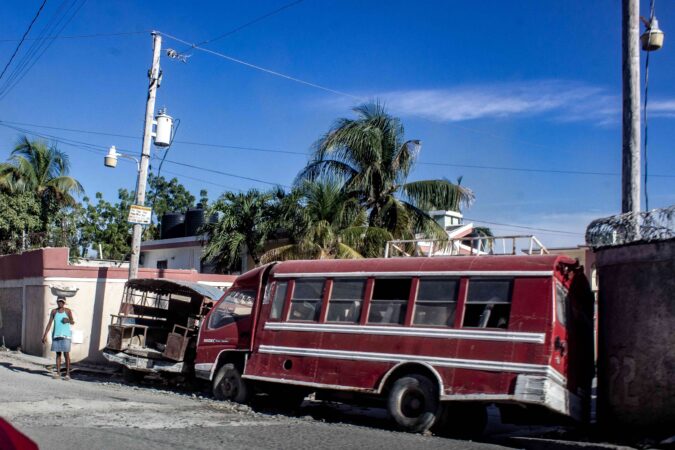
In Delmas 33, a road that leads to Maïs-Gaté, not far from the Visa Lodge Hotel area, is blocked by broken-down or dilapidated buses.
For sociologist Kesler Bien-Aimé, the construction of barriers in certain working-class neighborhoods indicates that residents are taking charge of their own security, in a context where the State is failing to fulfill this mission.
“It is an increasingly visible phenomenon, but one which was already in progress in certain places in the country,” he recalls.
Previously, certain residential neighborhoods like Juvénat, Pacot, etc. where wealthy people live, built barriers with the aim of barricading themselves inside and thus ensuring a certain autonomy from the rest of the inhabitants.
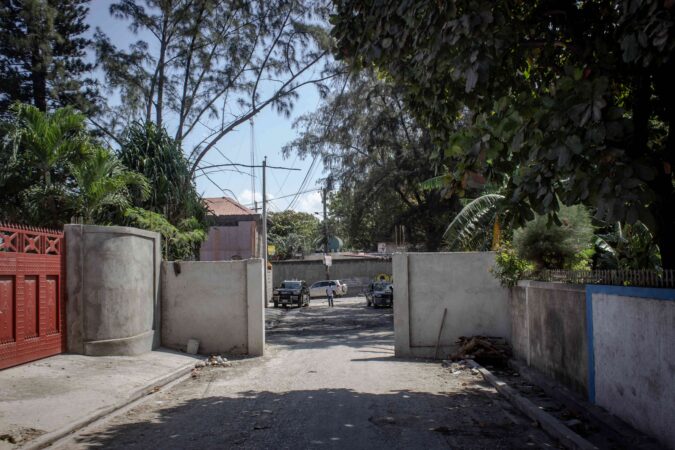
At the entrance of the Djoumbala intersection, on TA.G-Jacob street, a barrier is about to be installed.
This model is reminiscent of the “gated communities” present in France and the United States.
“It is also a way of indicating their social standing from other less fortunate classes,” explains the sociologist.
For Bien-Aimé, what is happening with working-class neighborhoods is indicative of a profound change which increasingly challenges the way social groups live together, beyond the small groups formed to defend themselves against insecurity.
AyiboPost attempted to contact the Haitian National Police (PNH) to obtain their perspective on this phenomenon, but they did not respond before the publication of this article.
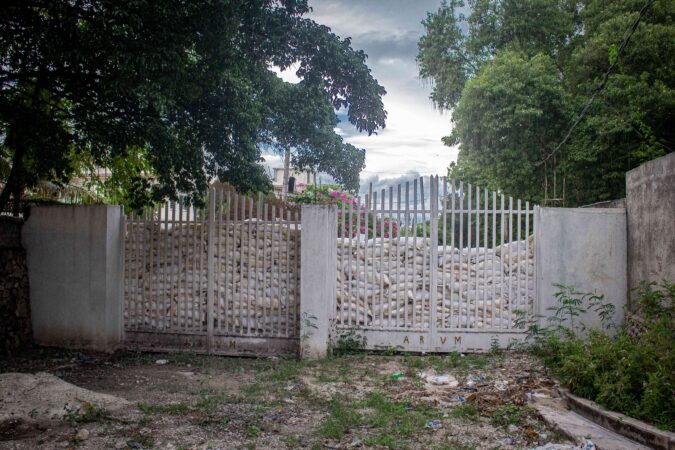
Sacks filled with sand have been placed behind a barrier to prevent projectiles from reaching a dead end at Vivy Mitchell.
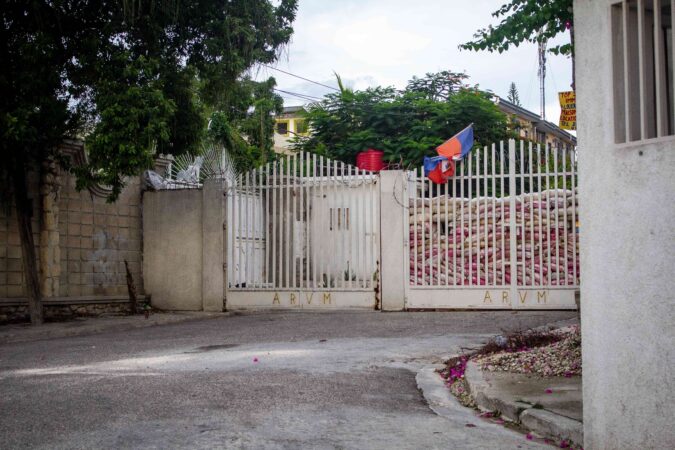
A dead-end in Vivy Mitchell barricaded by a reinforced barrier with sandbags.
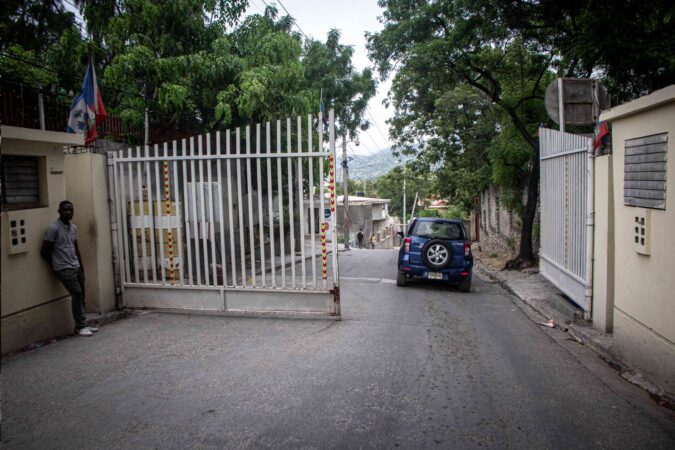
The main barrier at the entrance of Vivy Mitchell.
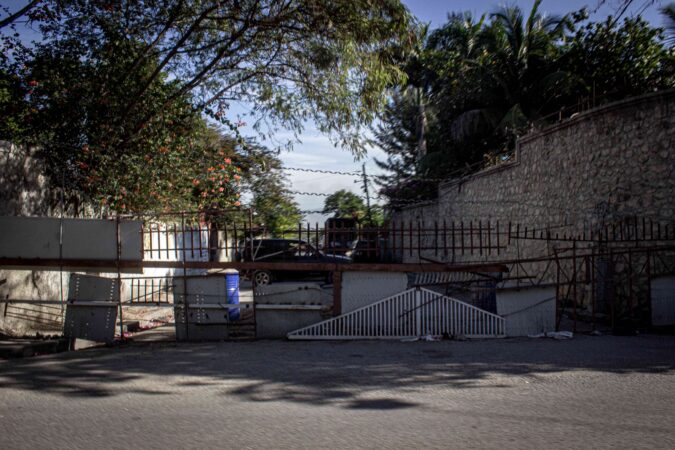
In Delmas 33, a road that leads to Maïs-Gaté, not far from the Visa Lodge Hotel area, is blocked by wrought iron barriers and other imposing objects.
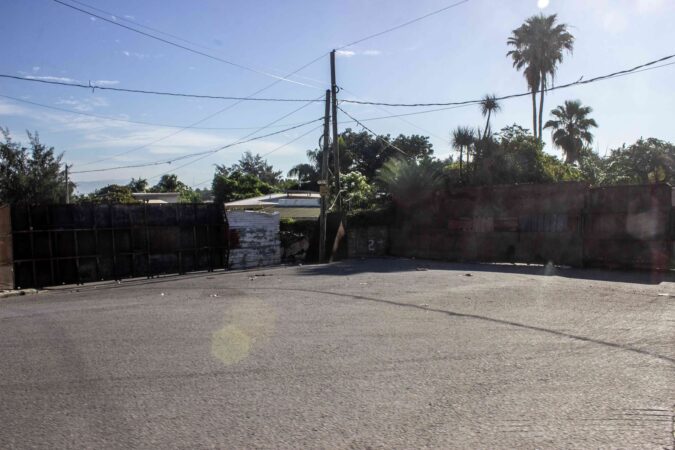
At Delmas 33, a road leading to Maïs-Gaté, not far from the Visa Lodge Hotel area, is blocked by broken-down or dilapidated buses.
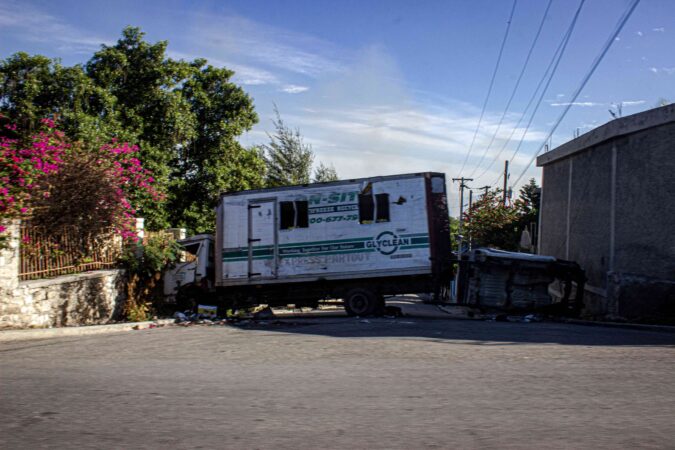
At Delmas 33, a road leading to Maïs-Gaté, not far from the Visa Lodge Hotel area, is blocked by broken-down or dilapidated buses.
By Wethzer Piercin & Jean Feguens Regala
English translation by Sarah Jean.
Cover image: In Delmas 33, a road that leads to Maïs-Gaté, not far from the Visa Lodge Hotel area, is blocked by broken-down or dilapidated buses. | © Jean Feguens Regala/AyiboPost
Gardez contact avec AyiboPost via :
► Notre canal Telegram : cliquez ici
► Notre Channel WhatsApp : cliquez ici
► Notre Communauté WhatsApp : cliquez ici


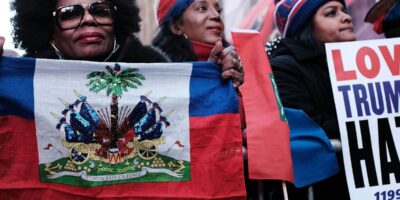
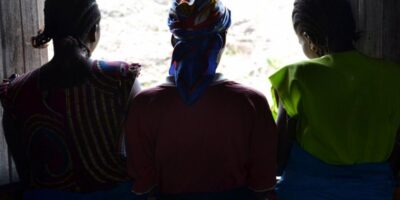


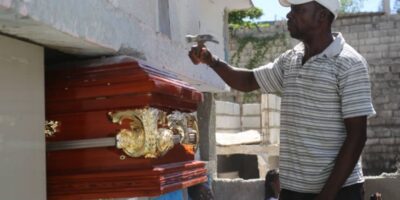
Comments